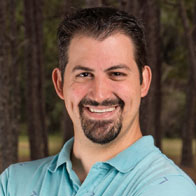A few years ago, I was listening to a sermon by Louie Giglio - on the topic of mental illness - that he preached at his church in Atlanta. In that sermon, he mentioned that he thought the Christian church should talk about the topic of mental illness more. Even though it’s hard to know how much more is enough, I suppose I agree. So, consider this is my attempt to participate in the church talking about this more.
OUT IN THE OPEN
Another one of the things that is often mentioned regarding this topic is the idea that people (especially church people) feel that they can’t share openly about it. It is often said that in Bible studies and in community groups, people are afraid they will be judged if they admit they struggle with depression or take a medication for their anxiety. I don’t doubt this. Admitting struggles is difficult. And if you think the people you share them with will attack you for having the struggles, it makes sense that you’ll clam up. And therefore, issues like this get pushed deeper into the darkness, rather than being brought out into the light. That is not helpful to the struggling person.
YOU ARE NOT ALONE
At this point, I suppose I’ll share that I struggle with anxiety. However, this is not some big reveal. I’ve admitted this publicly in sermons. And my reason for getting this admission out there is to communicate to anyone else who is reading this - especially anyone who is struggling with out-of-control thoughts going on in their mind – you are not alone. And Jesus can help with whatever your issue is. In fact, Jesus can help with any and all issues.
HOW DO WE FIX THE PROBLEMS?
An article like this one cannot possibly cover all of the methods and solutions that can be used regarding mental disorders. So, I’m not going to even try to do that. I’ve heard stories of great Christians who took medications to help them get through a terrible time of depression, and I’ve heard of other Christians who’ve dealt with anxiety through prayer and meditating on God’s word.
And it shouldn’t be surprising that there could be multiple ways that people successfully deal with these issues, since people are all different, and their problems are not all the same, and even people with the same problems don’t experience them with the exact same amount of severity. Therefore, there is not a one-size-fits-all solution that I’m going to mention here.
But there are a few items I’d like to cover. Firstly, what to call these problems.
WHY I BELIEVE IN MENTAL ILLNESS, YET WOULD USE THE WORD “DISORDER” MORE OFTEN
The word “illness” most often indicates a physical problem with one or more parts of the human body. Using the word in that sense, I believe there are mental problems that are rightly called “illnesses.” For instance, there can be problematic things (tumors, lesions, etc.) on someone’s brain that affect their thinking capacities. I don’t see any problem with Bible-believers recognizing this fact.
However, there could be a host of mental problems that are not directly connected to a physical problem with a human organ, such as the brain. Does that mean that these problems don’t actually exist? Well, of course they exist. But in many cases, I think we could call these things “disorders.” The psychological community seems pretty comfortable with the word, after all it’s what the “D” stands for in PTSD, OCD, and ADHD.
The reason I often prefer using the word disorder over the word illness is two-fold:
- I think the word “illness” conjures up thoughts of conditions like cancer and malaria. I am concerned that treating every mental disorder as if it is something like a bacterial infection could cause the people who have these disorders to think that they have almost no control over their thoughts, emotions, and decisions. In the cases where a person does have control over their thoughts, emotions, and decisions, it would obviously be bad to teach them that they don’t.
- “Disorder” seems like a good word for collections of bad thought patterns that debilitate people, especially if you don’t know the exact cause. After all, just going with etymology, “disorder” refers to a state where things are “out of order” or “not in the sequence that they ought to be in.” The word disorder doesn’t seem to necessarily and automatically medicalize every negative emotional experience like the word illness does, which is good. Because I believe someone can experience a lack of proper order because of physical, spiritual, medical, demonic, pharmaceutical, emotional, sinful, non-sinful, external, or internal reasons - or some combination of these. We shouldn’t treat every disorder as if it’s a disease. Neither should we hold to the idea that there are no disorders affected or caused by illness.
One current trend that concerns me is the increasing comfort people are having with identifying their struggles as something that is intrinsic to their being. It seems to me that older people tend to be more likely to say things like “I struggle with anxiety” whereas younger people seem to be more likely to say things like “I am Obsessive-Compulsive. I am socially awkward and anxious. It’s just who I am.” It seems to me this is not dissimilar to the practice of replacing “I struggle with same-sex attractions” with the words “I am LGBTQ.” It’s taking a descriptive term and connecting it to the very identity of that person, as if they cannot be who they are without that quality.
I believe that once someone has adopted a certain set of thoughts, values, or behaviors as “who they are” it becomes almost impossible for change to take place. You can change what you do. But how can you change who you are? It is for this reason we should be careful which things we place in the category of “things that define who I am.”
There are many times that the Bible commands God’s people to think or feel a certain way. There are commands like “Rejoice,” “Do not worry,” “Do not lust,” and “Be slow to anger.” It seems to me the Bible assumes that, generally speaking, we have some measure of control over our thoughts and emotions, and are therefore responsible to steward them well.
MENTAL HEALTH IS AN EVERYBODY THING
Let me end with one last set of thoughts on this topic (of which we’ve only scratched the surface.) I saw a Christian ministry post something on Facebook that said that mental health was a complex and far-reaching issue in our community and that it affects 1 in 5 people in this country.
I thought to myself: “How can someone say 'mental health' affects 1 in 5 people? I can’t imagine someone saying ‘physical health affects 1 out of 5 people.’” No. Everyone is affected by their physical health. And the same goes for mental health. Mental health actually affects 5 out of 5 people.
I realize someone could say, "Mario, you are being picky. Obviously, they meant mental health disorders affect 1 in 5 people." But I would say even that is not necessarily true and is ultimately unknowable. Again, it would be similar to making the claim that 1 out of 5 people have a problem with their physical health. How can you know that? Not every health problem is diagnosed. And different people have different degrees of struggles. Someone with regular headaches or back pain has "health problems" even if they aren't going to a doctor or treating it. And similarly, everyone has to deal with problems that affect their mind. Not just 20% of people. Everyone. Mental health is important for everyone.
WRAPPING THIS UP
I realize this article brought up a bunch of issues but didn’t solve everything. That is fine with me. I think this is a tough topic for which I don’t have all the answers. But I wanted to submit these thoughts as a starting point for addressing the topic. So, let me review:
- This topic should not be pushed into the darkness, but rather brought out into the light.
- There could be different solutions for this problem for different people.
- While there are obviously medical conditions that affect our brains, the word “disorder” is probably better for describing the situations when we don’t know exactly what the cause of the problem is.
- There could be multiple causes for mental disorders, not all of which are physical or medical.
- We should be careful how we define ourselves; we should not define ourselves in ways that go against God’s will.
- Mental health isn’t an issue that just affects a select few people. We all should desire and work for mental health just as we do physical health.

